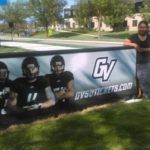| By CHERYL SOLTIS, Staff Reporter of The Wall Street Journal
From The Wall Street Journal Online
In the Fall of 2001, Rutgers University sophomore John Donnelly found himself at a crossroads. He was pursuing an undergraduate degree in psychology, but wasn’t sure it was the right profession for him. Mr. Donnelly decided to take a semester off, and when he returned, he sought help from the Career Services office to figure out his next step. The office at the New Jersey university gave him access to assessments of his interests and a “behavioral inventory” that evaluated what kinds of jobs might be suitable for his personality. It also offered other free services such as access to the federal government’s jobs database, which supplies information on what a particular career might entail and average salaries. “These were helpful to someone who knew what he didn’t want, but wasn’t so sure of what he did want,” Mr. Donnelly said. He began working toward a dual degree in psychology and landscape architecture, and now is a draftsman at Melillo & Bauer Associates, a landscape-architecture firm in Point Pleasant Beach, N.J. As graduates-to-be get ready to take their first steps into the working world and alumni consider switching jobs, many overlook one of the richest resources on campus. Career-services departments help both students and alumni with their job hunts. They offer information on writing effective resumes and cover letters, job fairs, mentoring programs and career counselors to coach students through the job hunt, and may offer a Web site that students can use to search for jobs and internships, and even upload their resumes for employers to examine. In addition to such standard services, some offices have launched programs with a wider reach. Trudy Steinfeld, executive director for the New York University Office of Career Services, says the university holds nearly 600 career-related seminars and workshops each year. It also runs mini career fairs with 15 or 20 organizations that focus on one sector — typically a competitive field, such as publishing. It even sponsors a dining-for-success program “where we take 100 students out to a restaurant and train them in dining etiquette,” Ms. Steinfeld says. The program prepares students who might not otherwise be exposed to such situations for events such as lunch with a future employer or taking a client out to dine. Although larger schools often have more programs and bigger staffs, smaller colleges may be able to offer more personalized services. Green Mountain College in Poultney, Vt., which has fewer than 700 students, creates “student-life transcripts” that track extracurricular activities. Renee Beaupre White, director of career services, says the system helps students when it’s time to create a resume. “A senior might come in and say, ‘Oh yeah, I think I did this, but I don’t remember when,’ and this helps us and them keep a record,” she said. Students get more one-on-one time at smaller schools, Ms. Beaupre White adds. “I love the fact that I’m able to know the students and that they can know me,” she says. When should students get to know the career-services office? “The most important thing for students is to be fully engaged in an academic program and fully involved in their residential setting,” says Patricia Rose, director of career services at the University of Pennsylvania in Philadelphia. “Typically first-semester freshmen are very busy acclimating to college life, but for second-semester freshmen it could be a good time to see what career services has.” Mike Sollenberger has a student job in the career-services department at Baldwin-Wallace College in Berea, Ohio, where he’s a junior finance major. “Working here helps me with networking skills, and it gives me an inside scoop on internships. It’s definitely an advantage,” Mr. Sollenberger said. Laurel Munshower, a production artist at Diversified Digital & Screen Printing Inc. in suburban Philadelphia, didn’t know career services even existed at Edinboro University, in Edinboro, Pa., when she was a student there from 1999 to 2003. Although she secured a job on her own, she might have taken advantage of the career-services office if it had been better advertised. “They could have pointed me in the direction of firms and studios in my field looking to hire, or even set up meetings,” Ms. Munshower says. Kewa Luo, a recent graduate of Duquesne University in Pittsburgh, came to the U.S. from Beijing in August 2002 to study communications and multimedia. She found four internships through career services, at nonprofit environmental group the Sierra Club, a television station, a public-relations firm and an advertising agency. “I don’t think they find the internship for you, but they offer you a source and help you get stuff ready, like your resume,” she says. Mr. Donnelly, the draftsman, also suggests deciding what kind of help you want before venturing to the office. “Have a clear idea of what you want to gain from your interaction — even if it is a rather broad idea, like finding a new career,” he said.
|
|||
|









